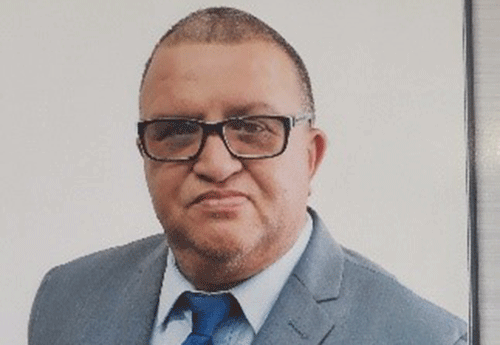reverend Jan Scholtz
Democratic governance is a system whereby all the sectors of society participate fully and have responsibility for the affairs of their state i.e. participation by all. Democratic governance, therefore, refers to a situation whereby the rulers and the ruled participate in the decision-making process at all levels.
During the pre-colonial period in Africa, there was democracy; men, women, and youth knew their roles in the society and participated fully in the system of governance.
It was during the colonial period that the whole system of democratic governance was deliberately confused, and we were made to believe that we needed to be civilised and developed because we were barbaric.
In that way, the question of democratic governance was on the rocks and the question of loyalty to the country or patriotism was no longer an issue. Furthermore, even after independence, the creation of one-party states in some countries makes it difficult, if not impossible for people to participate in their own affairs. People had to think the way the government wanted them to think.
The reality is that most African countries are youthful and as such one would expect that there is full participation of youth in democratic governance. The contrary is the fact: youthful as most of our countries are, there is little or no youth participation in democratic governance.
Youth are not taken seriously as they are believed to be people with Utopian thoughts or at worst without ideas at all. The majority take to platforms such as social media to rather rain insults and abuse on leaders as opposed to practical and meaningful involvement in the nation’s development.
The immediate questions that come after such a statement are:
How can young people be the future of the country but are not empowered?
How do you become a leader in the future when you are not given a chance to prove yourself?
These are questions that we must address head-on. On the other hand, these are questions that the youth themselves must try to tackle, or else their marginalisation will continue.
The youth hold immense power, as the current and future driving force of the nation. Yet they have the ability to marginalise themselves.
The energy that the youth have must be focused quite well such that we build our own future because no one will build it for us.
The youth have a moral obligation to introspect themselves. They need to ask questions like:
(i) What can we offer to our country?
(ii) Are we ready to take responsibility for our actions etc?
The tendency is that of always blaming the status quo for failures. Why, for instance, we do not challenge, radically but peacefully, our government about our right to participate in democratic governance?
Why are the youth lazy and uninspired to even register as voters so that the ballot box is used to bring about alignment of goals and ideas?
Why should we keep on saying the situation is not conducive to challenging the powers that be?
The time has come to do what is right. The time has come to challenge the status quo whether it is better to do or not.
Let us be a segment of the national demographic that cannot be ignored by constructively participating in any decision-making process while using the relevant avenues to show drive and initiative. Let us make those who fear us have confidence in us by showing our ability to do the right things at the right time.
It is high time that we demand what we deserve in our country.
It is high time that we become engineers of our destiny.
It becomes difficult to speak of the youth’s role when they fail to take charge of their destiny.
The youth must work hard, to bring about tangible results or actions that will bring confidence in the government to allow involvement in driving the nation forward.
It is at this note where we must utilise structures such as the Ministry of Youth, National Service, Sport and Culture; National Youth Council; Constituency Youth Forums, etc., to assist us in realising our dreams.
This should, however, not just be on paper but in practice.
Let us demonstrate to the whole world that the youth play constructive roles in the decision-making and governance of our country and lives.
* Reverend Jan. A. Scholtz is the former Chairperson of ||Kharas Regional and former !Nami#nus Constituency Regional Councillor and has worked for 16 years as a Senior Youth Officer, and Head of Centre and is a holder of Diploma in Theology, B-Theo (SA), a Diploma in Youth Work and Development from the University of Zambia (UNZA), Diploma in Education III (KOK) BA (HED) from UNISA


